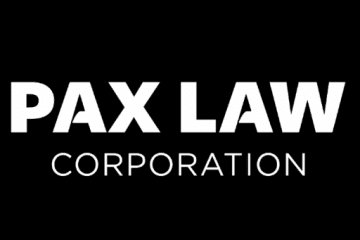In British Columbia, directors and officers play critical roles in the governance of corporations. Their legal responsibilities are defined under the Business Corporations Act (BCA) and shaped by common law principles. Understanding these obligations is essential for anyone serving in such positions, as the stakes include both personal liability and the corporation’s overall health and success.
Table of contents
Who Are Directors and Officers?
- Directors: Individuals elected by the corporation’s shareholders to oversee the management and direction of the business.
- Officers: Typically appointed by the board of directors, officers include roles like the CEO, CFO, and other key positions responsible for day-to-day operations.
Together, directors and officers act as fiduciaries for the corporation, making decisions that align with its best interests.
Legal Duties of Directors and Officers in BC
- Duty of Care
Directors and officers must exercise the care, diligence, and skill of a reasonably prudent person in a comparable position.- Example: Reviewing financial statements carefully to make informed decisions about the company’s strategy or solvency.
- Failing to meet this standard could lead to accusations of negligence.
- Fiduciary Duty
They must act honestly, in good faith, and in the best interests of the corporation.- This includes avoiding conflicts of interest, such as prioritizing personal gain over corporate welfare.
- Directors must disclose any interest in a transaction involving the corporation.
- Duty to Comply with Laws and Regulations
Corporate leaders must ensure the business adheres to applicable laws, including environmental, employment, and tax regulations. Ignorance is not an excuse, and penalties can be severe. - Financial Oversight Responsibilities
Directors are required to oversee the preparation and accuracy of financial statements and ensure taxes are filed and paid on time. They are also tasked with maintaining proper records, as stipulated under the BCA. - Acting in Insolvency Situations
Directors must be cautious when a company faces financial distress. Continuing to incur debts when the corporation cannot pay them may result in personal liability under Canada’s Bankruptcy and Insolvency Act or through civil lawsuits by creditors.
Key Legal Liabilities
- Personal Liability:
Directors can be personally liable for:- Unpaid wages (up to six months).
- Unremitted taxes, including GST and source deductions.
- Environmental damages caused by the corporation.
- Breach of Fiduciary Duty:
If directors act dishonestly or in bad faith, they may face lawsuits from shareholders or regulatory penalties.
Protecting Yourself as a Director or Officer
- Diligence and Preparation:
Attend meetings, review reports, and ask questions to ensure you’re making informed decisions. - Indemnification:
Ensure the corporation provides indemnity for directors and officers. This protects them against certain liabilities incurred in their role. - Director and Officer Liability Insurance (D&O Insurance):
This policy provides financial protection against lawsuits stemming from alleged wrongful acts during the execution of duties. - Compliance Programs:
Advocate for robust internal controls and compliance programs to prevent regulatory breaches.
Conclusion
Serving as a director or officer of a BC corporation is a position of significant trust and responsibility. While the role carries inherent risks, a clear understanding of legal duties and diligent adherence to best practices can mitigate these risks. By prioritizing transparency, compliance, and the corporation’s best interests, directors and officers can contribute to sustainable business success while safeguarding their own legal and professional reputations.
If you’re considering a position as a director or officer or currently serving in such a role, it’s wise to consult with legal and financial professionals to ensure you’re adequately informed and protected.
FAQs: Directors and Officers Legal Responsibilities in BC
What is the primary role of a director in a BC corporation?
Directors are responsible for overseeing the management and strategic direction of the corporation.
What is the fiduciary duty of directors and officers?
Fiduciary duty requires directors and officers to act honestly, in good faith, and in the best interests of the corporation.
What is the duty of care for directors and officers?
Directors and officers must exercise the care, diligence, and skill that a reasonably prudent person would in similar circumstances.
Can directors and officers be personally liable for unpaid wages?
Yes, directors can be held personally liable for up to six months of unpaid wages.
What happens if a director has a conflict of interest?
Directors must disclose any conflicts of interest and refrain from participating in decisions where the conflict exists.
Are directors responsible for the corporation’s taxes?
Yes, directors can be held personally liable for unremitted taxes, such as GST and payroll deductions.
What records must a BC corporation maintain?
A corporation must maintain accurate financial statements, meeting minutes, and a register of shareholders and directors.
What is D&O insurance?
Directors and Officers (D&O) insurance provides financial protection against personal liability for decisions made in their roles.
Can directors be liable for environmental damages?
Yes, directors can be personally liable for environmental damages caused by the corporation.
What should directors do during financial distress?
Directors must act cautiously and avoid incurring debts that the corporation cannot repay to prevent personal liability.
What is the Business Corporations Act (BCA)?
The BCA is the legislation governing corporate operations and responsibilities in British Columbia.
How are officers appointed in a corporation?
Officers are usually appointed by the board of directors to manage the corporation’s daily operations.
What is the difference between directors and officers?
Directors oversee the corporation’s governance, while officers manage daily operations and implement board policies.
What are the financial oversight responsibilities of directors?
Directors must ensure financial statements are accurate, taxes are filed, and the corporation’s finances are managed responsibly.
How can directors mitigate personal liability?
Directors can mitigate liability by maintaining diligence, obtaining D&O insurance, and ensuring compliance with laws and regulations.
What happens if directors breach their fiduciary duty?
Directors may face lawsuits from shareholders or penalties for acting dishonestly or in bad faith.
What should directors consider before joining a corporation?
Directors should understand the corporation’s financial health, governance practices, and legal compliance status.
Can shareholders sue directors for poor decisions?
Shareholders can sue directors if their decisions breach fiduciary duties or involve negligence.
What is the standard of care for directors in BC?
The standard of care requires directors to act with diligence, skill, and prudence in the best interests of the corporation.
Can directors delegate their responsibilities?
Directors can delegate tasks but remain responsible for oversight and ensuring proper execution.
What are corporate governance best practices for directors?
Best practices include attending meetings, staying informed, avoiding conflicts of interest, and ensuring legal compliance.
Can directors resign to avoid liability?
Directors can resign, but they may still be liable for decisions made while in office.
What is indemnification for directors?
Indemnification is when the corporation agrees to cover directors’ legal expenses and liabilities arising from their role.
How often should directors review financial statements?
Directors should review financial statements regularly, often during board meetings, to ensure the corporation’s financial health.
What is the penalty for failing to comply with the BCA?
Non-compliance with the BCA can result in fines, penalties, or even dissolution of the corporation.



0 Comments